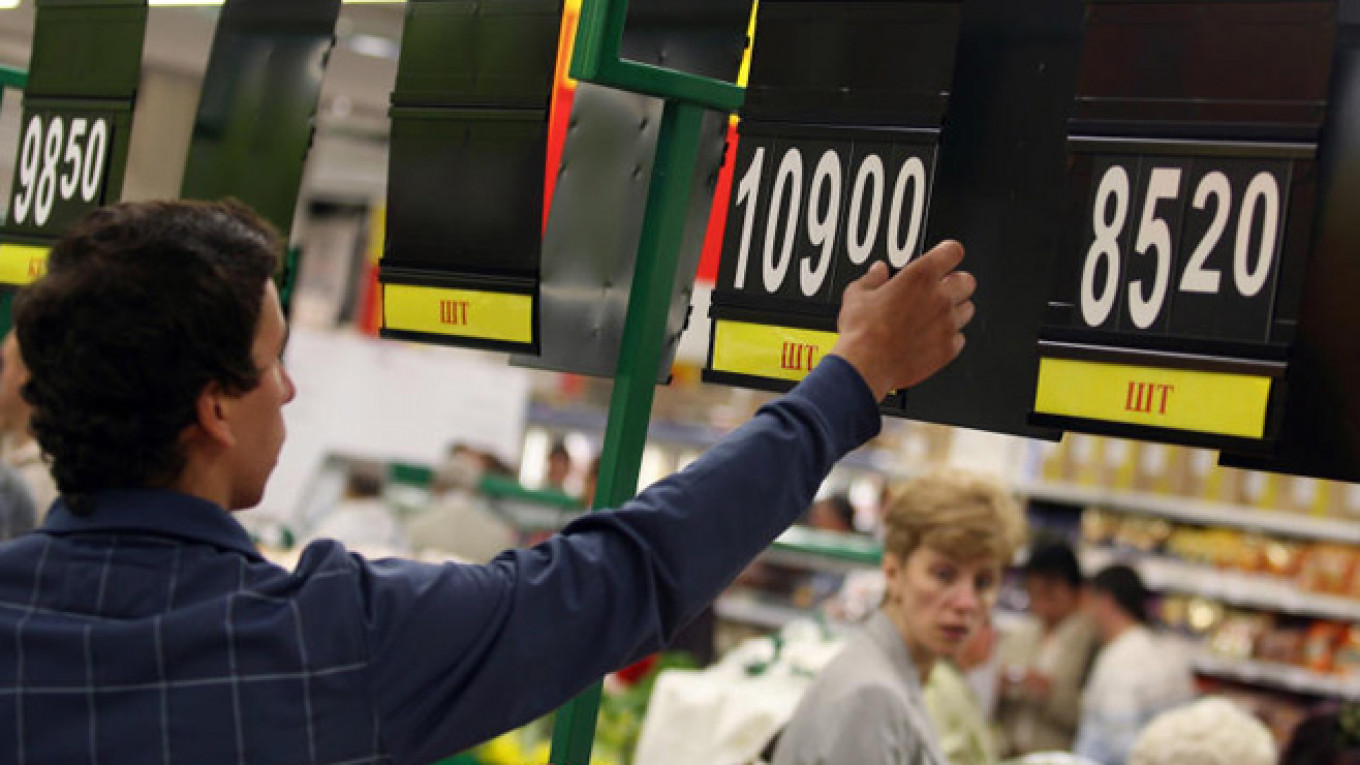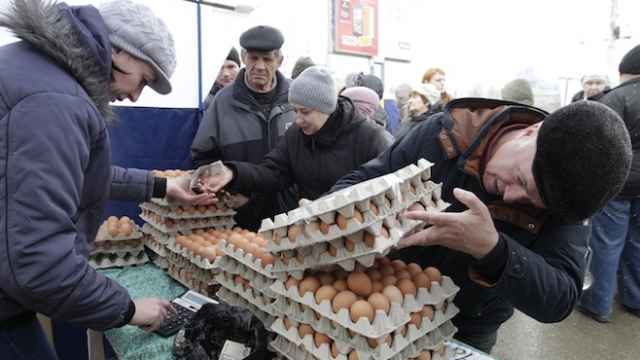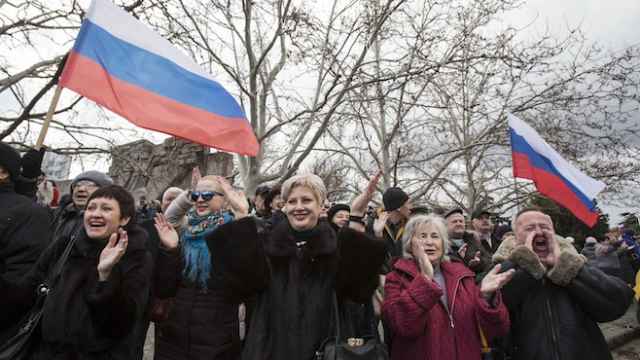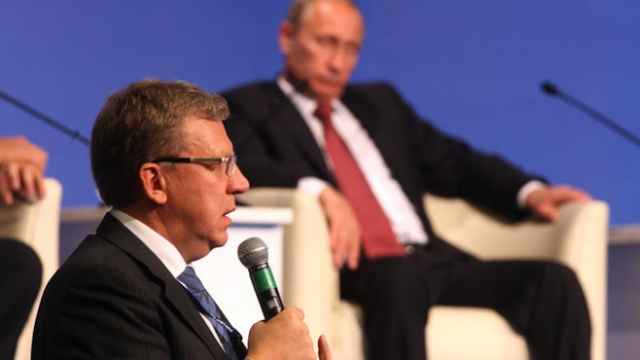Russian price inflation rose to 16.9 percent in March, its highest level since 2002, as the country adapts to a sharply weakened ruble and the impact of politically motivated food import bans.
But despite the new high in the year-on-year rate, price growth is slowing, data published by the Rosstat state statistics service on Monday showed. Prices rose 1.2 percent in March, following increases of 2.2 percent in February, 3.9 percent in January and 2.6 percent in December, Rosstat said.
Inflation surged after Moscow imposed bans on imports of food from the United States, the European Union and a number of other countries in August in response to sanctions over Russia's actions in Ukraine. A near 40 percent fall in the value of the ruble against the U.S. dollar since last summer has also raised the cost of imports.
Food prices are rising faster than average inflation. The cost of food rose 1.6 percent in March and 23 percent year-on-year, according to Rosstat. As spiraling inflation outstripped wage growth, real average incomes fell almost 10 percent in February compared to the same month in 2014.
March's 16.9 percent annualized inflation rate compares with 11.4 at the end of last year and around 6 percent at the start of 2014. The current inflation rate exceeds the high of around 15 percent reached during the 2009 economic crisis and is higher than at any point since 2002.
Authorities watched the price rises with alarm, and earlier this year the Prosecutor General's office launched a nationwide campaign of spot checks at supermarkets that led to hundreds of charges of price fixing and profiteering.
The Central Bank is more sanguine, saying last month that inflation would subside to 12 to 14 percent by the end of 2015.
Russia's economy is expected to shrink by up to 5 percent this year.
A Message from The Moscow Times:
Dear readers,
We are facing unprecedented challenges. Russia's Prosecutor General's Office has designated The Moscow Times as an "undesirable" organization, criminalizing our work and putting our staff at risk of prosecution. This follows our earlier unjust labeling as a "foreign agent."
These actions are direct attempts to silence independent journalism in Russia. The authorities claim our work "discredits the decisions of the Russian leadership." We see things differently: we strive to provide accurate, unbiased reporting on Russia.
We, the journalists of The Moscow Times, refuse to be silenced. But to continue our work, we need your help.
Your support, no matter how small, makes a world of difference. If you can, please support us monthly starting from just $2. It's quick to set up, and every contribution makes a significant impact.
By supporting The Moscow Times, you're defending open, independent journalism in the face of repression. Thank you for standing with us.
Remind me later.






